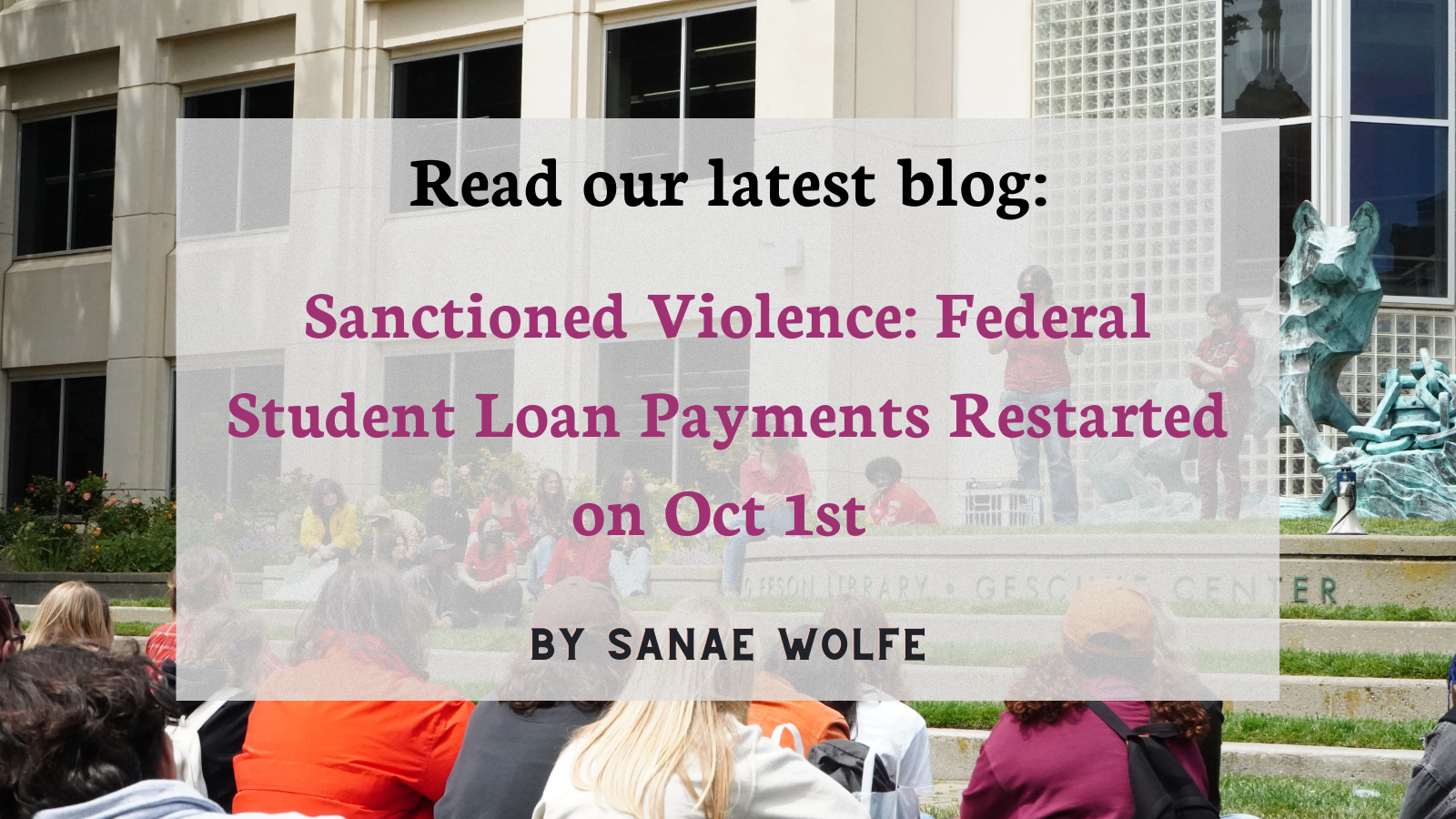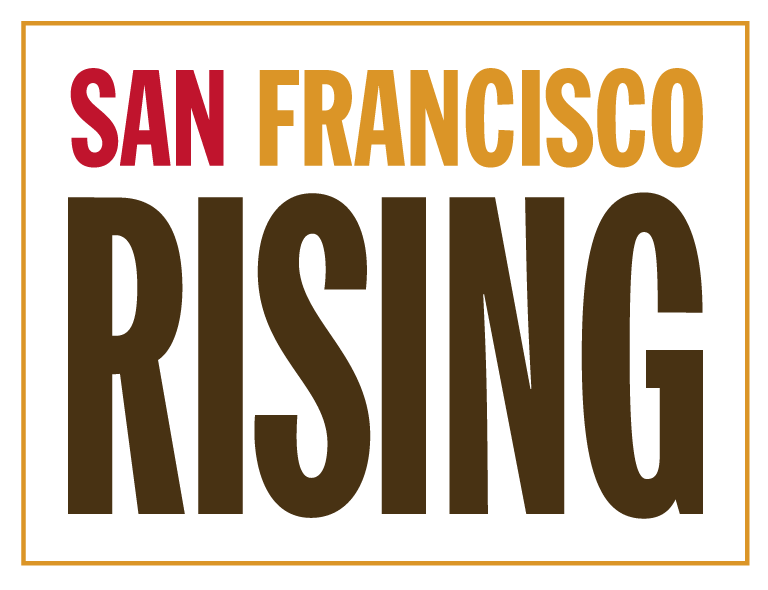by Sanae Wolfe
After a three-year whirlwind of pausing student debt repayments and a promising proposal of millions of dollars in debt being cancelled, both of those things have been stripped away right before our eyes despite all of our demands. With the presence of a global pandemic that infected more than 75% of the United States population, Congress made the natural choice to pass The Coronavirus Aid, Relief, and Economic Security, or CARES Act in March of 2020. This act provided a pause of federal student loan payments for 44 million borrowers. However, since the beginning of September, student loan balances started once again accruing interest and on October 1st, borrowers were burdened with resumed student loan payments. This failure to act on the part of our elected officials is one of immense, immediate consequence for millions of us students nationwide.
In a 2022 study, The National Center for Education Statistics calculated the average monthly federal student loan payment to be nearly $300, though some are tasked with paying an even higher amount. For context, America’s federal minimum hourly wage is just $7.25 and has been since 2009. This means, when factoring in the rising cost of living, the decision to restart loan repayments backs many borrowers into grim dilemmas such as choosing between buying groceries or being forced further into debt. In having to forge paying on student loans in favor of putting food on one’s table and covering the daily expenses of life, borrowers are forcibly subjected to vulnerable financial statuses and disadvantaged in an onslaught of other ways. One way in which borrowers are disadvantaged is in being made more susceptible to negative impacts on their mental health from stress. Explicitly, researchers have drawn a connection to high student loan debt and both anxiety and depression, and even more have found that one in fourteen borrowers had suicidal ideation due to student loans. Even more damning, the issue of student debt also does not affect all borrowers equally, due to systemic inequalities in our country. This connection was further exacerbated among low-income graduates. BIPOC students are more likely to need to take out larger amounts of student loans, and less likely to pay them off, meaning that they disproportionately face the long-lasting consequences of having student debt.
While unsympathetic wealthy politicians are quick to justify this, arguing that since borrowers knowingly decided to take out a loan there should be no loan cancellation, this is an oversimplified view that ignores the realities and nuances of the majority of federal student loan borrowers. Many students, myself included, have a desire for more education yet would not have received such without scholarships and federal student loans. Does this mean that we simply don’t deserve an education, or should have to acquiesce in being complacent with the level of education we have? Beyond this, within the structure of our current society it is all the more difficult for one to elevate their socioeconomic status without a college degree. On average, high school graduates experience higher unemployment rates and earn lower median salaries than college graduates. Personally, coming from a single-parent, working-class household, even after receiving multiple scholarships, I’ve had to borrow $22,272 as well as my mother having taken out additional funds on my behalf in parent plus loans. As grateful as I am for the ability to access higher education through these funds, my loans are an active stressor concerning my future. As I’m aware that in the event of any unpredictability in life, the amount I owe would continue to grow, which would make it all the more difficult to pay them off. With all that being said, it is clear that the recent decision to re-burden students with mountains of debt does not serve or benefit any of us, is genuinely violent, and one that we should resist.
Though Congress first passed the CARES Act as a result of a pandemic that reached every single corner of our world, the reality is that in its wake, and even before it, many of us were and are still struggling. Our government should work for us not against us in fighting against the struggles we face. Instead, our elected leaders have lacked vigor in securing relief for student loan borrowers and severely missed the mark, allowing total student debt to tower to $1.77 trillion. While the Biden-Harris administration is in the process of proposing additional plans for student loan forgiveness, because payments restarted this month, many borrowers are now in precarious situations and cannot wait a second longer under the heavy burden of debt. Fortunately, there are a few protective measures that can be taken. First, there are a number of programs through which you may be able to receive student loan cancellation if you meet certain criteria. A list of programs, and the requirements needed to qualify can be found here. Additionally, if you are, like many of us borrowers, not eligible for any cancellation programs, there’s also the option to go into deferment, which allows you to temporarily stop making payments. Whatever path you decide to go down with your loans, know that there are options. While this is a daunting state of affairs, it is not one we must go at alone or accept as final in the pursuit of relief for student loan borrowers. The fight for education access and equity will not cease till it’s achieved.



